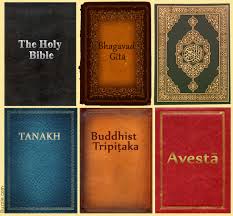
This staying up all night to read the scriptures is not confined to Judaism. Muslims will be doing the same shortly. At the moment they are keeping Ramadan, believed to be the month in which the Qur'an was revealed. Towards the end of Ramadan (this year on 2 July) occurs the holiest night of the Muslim year. It's know as Laylat Al Qadr which means the Night of Power and commemorates the night the first verses of the Qur'an were revealed to the Prophet Mohammed. It's mentioned in the Qur'an, in Surat Al-Quadr
We have indeed revealed this (Message) in the Night of Power:
And what will explain to thee what the night of power is?
The Night of Power is better than a thousand months.
Therein come down the angels and the Spirit by Allah’s permission, on every errand:
Peace!...This until the rise of morn!
So Muslims too will be staying up all night to read, study and pray, believing this to be a particularly efficacious time to draw close to God and have prayers answered. For some it's the start of a kind of retreat - striving to be especially observant and devout - which will finish with the celebration of Eid.
Hindus too follow a similar tradition. They pray and sing hymns all day and even all night on feasts such as the birth of the Lord Krishna who is thought to have been born at midnight - something something that finds an echo in the Catholic tradition of midnight mass when the birth of Jesus is celebrated. And then there's the Sikh tradition of reading the whole of their scriptures, which takes about 48 hours, during festivals and special events such as the opening of a new Gurdwara as happened here in Glasgow recently.
Scriptures are central to every faith and regarded by their followers as the Word of God or the Word of the Buddha in the case of Buddhism, though they don't often see the scriptures of other faiths in that light. For the believer scripture is a living word which is seen to have power, holding within it the possibility of transformation. Sometimes it's not necessary to understand the words to feel this power. For many believers hearing their sacred language chanted and sung is enough to bring them into that contemplative space within themselves in which they find the presence of God. But the words too are important but not to be taken at face value. Scriptures are complex and varied. Buddhist scriptures are so numerous that they could fill a library and different schools of Buddhism emphasise those scriptures that most reflect and condition their specific tradition. Hindu scriptures too are complex, some regarded as more sacred than others but all containing a religious message. The Sikh holy book, the Guru Granth Sahib includes hymns and prayers from Hindu and Muslim saints, the Jewish and Christian Bible is really a collection of different kinds of books and the Qur'an contains surahs reflecting life in Mecca and Medina. This means that the context and nature of the literature has to be taken into consideration. What did these words mean in their time and how relevant are they today. For this study is necessary and all religions have their experts who do this.
But there's also another way for ordinary believers. We can come to the sacred text seeking the wisdom that is within it, listening and discerning what evokes a response in our heart, using its message to live life more lovingly and fully. And in this sense the scriptures of all faiths can become for us all a Word of God.


 RSS Feed
RSS Feed
